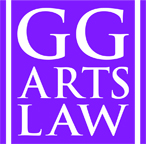
Last night, July 6, 2020, Immigration and Customs Enforcement (ICE) announced that all F-1 (student) visa holders attending schools that have decided to operate entirely on-line for the fall 2020 semester due to the COVID-19 pandemic will not be permitted to take a full online course load and remain in the U.S., forcing schools and non-U.S. students to make potentially life-threatening decisions if non-U.S. students wish to enter and/or remain in the U.S.
Click Here to read the proclamation:
Students who are currently outside the U.S. and are enrolled in schools that will be offering only on-line courses during the fall 2020 semester will not be permitted to receive F-1 visas (assuming they can find an open consulate) or enter the U.S. (assuming they are not already a citizen on the list of banned countries.) Such students who are already in the U.S. and enrolled in such programs will be required either to depart the U.S. or transfer to a school which will be offering in-person and/or on-campus courses. If they fail to do so, they will be subject to deportation proceedings.
Students attending schools that have decided to adopt a hybrid model—that is, a mixture of on-line and in-person instruction—will be permitted to remain and/or enter the U.S. provided such students are not taking an entirely on-line course load for the fall 2020 semester and are taking only the minimum number of on-line classes required to make normal progress in their degree program.
No, we do not actually know how they will define “the minimum number of online classes required to make normal progress in their degree program. Presumably, they will be looking for hybrid programs that require the majority of the course instruction to be in-person as opposed to on-line. In other words, offering or requiring only a single in-person course and everything else on-line may not be sufficient.
ICE has also given no clarification on how hybrid programs will be required to schedule the on-line versus in-person instruction throughout the fall 2020 semester. That is, we do not know whether or not F-1 students who are already outside of the U.S. will be permitted to enter if the first half of their fall 2020 semester will be on-line only with in-person courses to be determined later in the semester. They could be denied entry or required to leave until they will actually be taking in-person courses.
There is no indication at this time that this rule will have any impact on F-1 students who have completed their course of study and have either already been approved for or are eligible for OPT. They are not required to be taking courses in the first place as, presumably, they have already graduated. Those students on CPT, on the other hand, WILL be subject to these new rules. While there is not much we know definitively, at this time we are recommending the following:
- Schools should consider developing hybrid programs that provide for some degree of socially distanced in-person rehearsals or one-on-one instructions throughout the fall 2020 semester.
- Ensure that all F-1 students who are currently outside the U.S. be given additional documentation from their school that they can provide to consulate and immigration officers confirming that (i) they are not taking an entirely on-line course load and (ii) if the first part of the fall 2020 semester will be on-line, why such courses cannot be taken outside of the U.S.
- Presenters, venues, agents, and managers should confirm that any F-1 artists they have engaged or represent are enrolled in schools with eligible hybrid programs for the fall 2020 semester.
- Consider switching eligible students from F-1 to O-1 sooner rather than later.
There has been some speculation as to the motivations behind this, including that the White Pride Piper wants to force schools to re-open. More likely, however, is that he is taking advantage of the pandemic to further his previously stated desire to limit the number of F-1 students in the U.S. It has long been the opinion of the Ringwraiths in his administration that F-1 students pose an inherent threat to our self-perceived greatness.
Lastly, just as a reminder, many U.S. Consulates remain closed and the travel bans on citizens from certain countries being able to enter the U.S. remain in place.

For additional information and resources on this and other legal, project management, and business issues for the performing arts, as well as to sign up for our newsletters and follow us on social media visit ggartslaw.com
THE OFFICIAL LEGALESE:
THIS IS NOT LEGAL ADVICE!
The purpose of this blog is to provide general advice and guidance, not legal advice. Please consult with an attorney familiar with your specific circumstances, facts, challenges, medications, psychiatric disorders, past-lives, karmic debt, and anything else that may impact your situation before drawing any conclusions, deciding upon a course of action, sending a nasty or threatening email to someone, filing a lawsuit, or basically doing anything that may in any way rely upon an assumption that we know what we are talking about.

